Changing the message on fertility
IF a new school sex education plan is adopted, Aussie kids might soon be learning that sometimes it doesn’t take a man and a woman who love each other very much to make a baby.
VIC News
Don't miss out on the headlines from VIC News. Followed categories will be added to My News.
EVER since sex education found its way on to the curriculum, it has generally focused on two aspects of reproduction: how a baby is made, and how not to make a baby until you are ready.
But if a new plan is adopted, all Aussie kids might also be learning that sometimes it doesn’t take a man and a woman who love each other very much to make a baby — sometimes it takes a single woman with a bit of cash and a great doctor; sometimes it takes two men and a woman happy to lend her body.
And, in addition to learning about reproductive health, kids could also be told the harsh reality: that one in six Australian couples will experience infertility.
Candice Thum, then Candice Reed, shot to fame in 1980 as Australia’s first IVF baby. Fellow “test tube baby” Rebecca Featherstone Jelen was born in 1983 at infertility clinic Bourn Hall, in the UK, where the world’s first IVF baby was also conceived.
In the early ’80s, there was only a 5 per cent chance IVF would be successful, so today there are not many IVF adults in their mid to late 30s.
MORE: THE FINANCIAL AND EMOTIONAL TOLL OF IVF
MEN RISK MISSING OUT ON CHILDREN
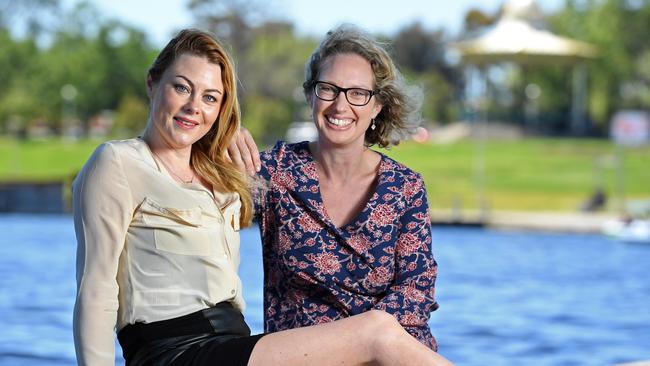
These two first IVF babies, now grown with children of their own, are behind a campaign to update the Australian school curriculum to better reflect the reality of making babies.
Thum and Featherstone Jelen met 12 years ago, when asked to front a campaign protesting government plans to restrict Medicare funding for IVF to women over 35. They’ve since become close friends, regularly advocating on IVF-related issues.
The IVF-lings, as they call themselves and others born through assisted reproductive techniques, started becoming alarmed at how little people knew about fertility.
“We were shocked,” Featherstone Jelen says.
“We were talking to educated, intelligent women who didn’t know the basics about fertility. They didn’t know that one in six couples experience infertility, nor that it’s not just a female problem.
“And an alarming number of people think that IVF will just work for them and they can always fall back on that.”
Thum and Featherstone Jelen believe this lack of information is leading to irreversible decisions and untold heartache.
“We realised that if any people were in a position to address this, we were,” Thum says.
In 2015, the pair launched Fertility Matters to campaign for better education on fertility health, including a petition calling for greater inclusion in the national curriculum. And with doctors and education specialists, they are creating a resource package for schools to help educate students in years 11 and 12 on the reality of what it takes to make a baby.
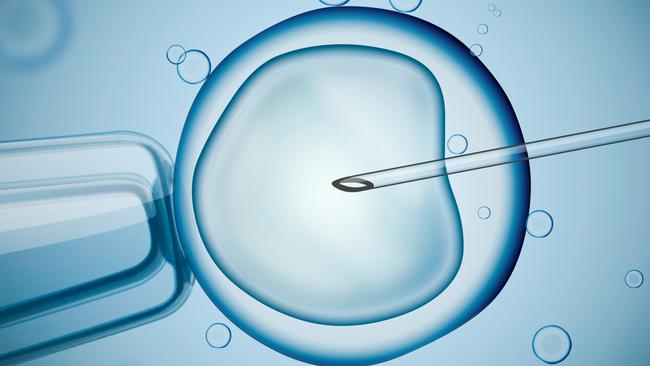
As the mother of two donor-conceived daughters of school age, Greta and Rori, it’s an issue that has caused me sleepless nights. What my daughters learn at school about fertility and IVF has the potential to significantly impact the way they see themselves.
Will they be taught it is sex between a man and woman that creates babies and start
to think of themselves as not normal?
And possibly more devastating: even if infertility and IVF are taught at school, how will they be taught? Will they be explained in terms of a scientific solution to a problem (think: couple can’t have kids, doctor helps) rather than the story I am telling them (think: single woman dreams of having kids, takes control of the situation)?
In Victoria, there are optional teaching resources that refer to IVF as one way conception occurs.
“Sexuality education, including reproduction, is covered in the Victorian curriculum within the health and physical education curriculum,” a Victorian Department of Education and Training spokesman says.
“The curriculum isn’t specific on whether schools need to teach about IVF, but it’s expected that schools teach about reproduction in a way that is inclusive and covers the range of reproductive possibilities.”
But Featherstone Jelen says that nationally, “the real problem is, the curriculum has not changed that much since we were at school.
“The curriculum mainly focuses on how not to get pregnant. That information is important, but we can’t ignore the fact that infertility is rife. People need the facts to make informed decisions. The focus is too much on the other side.”
Not everyone agrees.
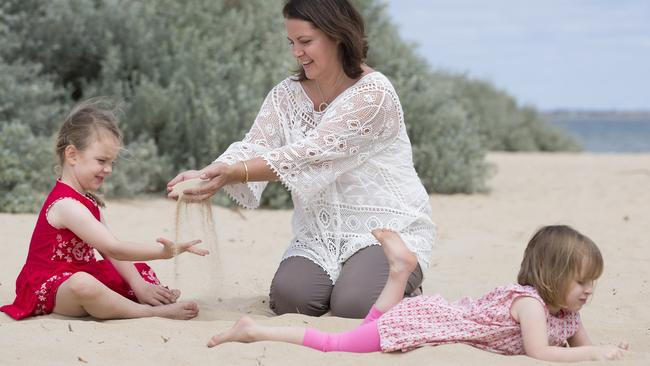
“I can well understand the longing of a woman to have a baby and (the) frustration of infertility,” Right To Life Australia president Margaret Tighe says. “But to be teaching IVF at school … it’s an utterly ridiculous suggestion.
“The majority of women today are fertile and are able to have children. Children at school really shouldn’t be concerned about how a woman can have children if she’s infertile.”
While not everyone is morally or ethically opposed to teaching about IVF and fertility at school, many parents in online forums agree with the sentiment.
“I didn’t learn about infertility at school,” posted one person. “I also didn’t learn about cardiovascular disease, type 2 diabetes, cancer, or mental health issues. If the rationale for teaching about infertility is it is common, one in six, then we had better start teaching kids about all the other things that might happen to them that are more common.”
Another posted, “Teaching teenagers how to get pregnant, rather than how to avoid it, doesn’t really sound like a great idea.”
The greatest opposition to the plan comes from the fact schools are already overstretched. There is a limit to what we should expect schools to teach, opponents believe, and at what point do we say, “No, actually it’s up to the parent to talk to their children about this?”
Tighe says, “Schools should be concentrating on the three Rs: reading, writing and arithmetic.
“The bottom line is these sorts of things are the prerogative of the parents. If parents want to teach their children about these matters, they are entitled to do so, but not schools.”
Tighe is also concerned about conflict between what’s taught at home and at school.
“You might have teachers teaching your children who have totally different views to what you hold,” she says.
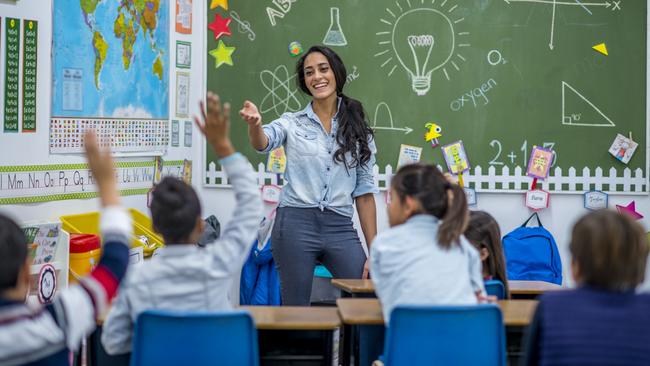
Australian Olympic aerial skier and five-time world title winner Jacqui Cooper says a lack of education could easily have cost her the chance to fulfil her dream of having a family.
At 37, and after a stellar career that saw her become the first Australian woman to compete at five Olympic Games, Cooper decided it was time to step back from her career and start a family.
“I retired and then wanted my uterus to fire up,” she says. “But it didn’t.”
Cooper has documented her IVF journey in Frozen Hope, a book she says addresses all the things she wishes she had known about fertility and the IVF process.
These days, Cooper laughs at her ignorance.
“When we started treatment, we were put on a sex schedule,” she says. “I didn’t even know there were only a couple of days a month when you could get pregnant.”
Cooper remembers a time in her early 30s when a doctor brought up the issue of fertility, suggesting perhaps, given her career success and the fact she was married, she might consider starting a family.
“I thought, ‘Oh my God, you are so old-fashioned. How dare you say that’,” she says.
As part of her fertility treatment, Cooper underwent four full IVF cycles with fresh embryo transfers and three separate transfers using frozen embryos.
She is now a mother to three children, including a set of twins, but says if she had known then what she knows now, she would have approached her fertility differently.
“I would have given more thought to retiring earlier,” she says.
“I wouldn’t have been as flippant, thinking, ‘Well, I am fit, so everything is going to be fine’.
“If I had had more information, I would have realised that your eggs are your eggs, they get old. It’s got nothing to do with fitness. I would have spent more time thinking about what to do, rather than thinking, ‘It’ll be all right’.”
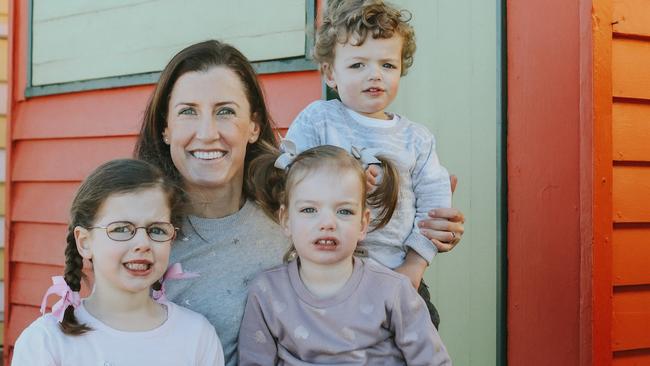
Melbourne-based embryologist and fertility expert Lucinda Lines says she hears this story every day.
“I am amazed at how many women in their 30s and 40s lack a basic understanding of biology,” she says.
Her company, Two Lines Fertility, was set up to address this gap in education. Lines works with singles or couples through their fertility journey, helping them understand the issues that may be affecting them, and guiding them towards services that can help them, as well as explaining the various medical options and outcomes.
“We are raised to believe that you grow up and if you want a baby, you just get one,” Lines says. “And when that doesn’t happen, people don’t know what to do. Not all GPs understand fertility treatment and Google offers up conflicting advice.”
Lines doesn’t believe fertility and IVF necessarily need to be addressed in a specific block of learning, but, she says, greater education will have a significant benefit.
“If your general knowledge of fertility and reproduction is at a higher level, you might know to seek help earlier, which will increase your chances of fertility,” she says.
“You might also better understand the treatment you are receiving, which will help ease some of the stress, also increasing your chances of success.
“If the bar is raised, it has the potential to increase the success of fertility treatment as well as decreasing the actual need for fertility treatment.”
The proposed Fertility Matters plan is primarily focused on fertility education, including issues of fertility preservation and health and lifestyles choices, while embracing the diversity of modern families.
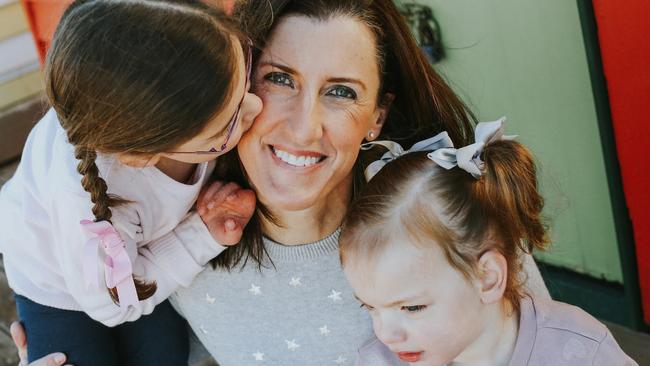
“When I was at school, I was the only IVF kid,” says Featherstone-Jelen. “But now you have IVF kids in every classroom and they each have their own story — some are donor-conceived, some have two mums.
“These are things that need to be discussed too. It’s important that it be normalised. These are healthy, happy children who are loved by their families.”
Experts argue that if nothing changes to normalise conception through IVF, a group hardest hit will be the queer community.
Kate Foord, general manager of support group Queerspace, says not teaching IVF at school leads to further marginalisation of kids with queer parents.
“Kids who are conceived with the help of a donor, or with their parents’ gametes but with assistance, are not in the story that the class is told about how everyone in the room got to be there,” she says. “Yet again, we produce a division between the ‘normal’ kids and the others.
“When will we realise that exclusion, ignoring and refusal hurts people and makes them feel they don’t belong?
“There are many things that go into making a baby. One of them is the desire to have a child. If we frame everything about reproduction as avoiding the risk of pregnancy from having unprotected heterosexual sex, we are failing to honour this desire, to give this desire its proper cultural place.”
The importance of inclusiveness is echoed by Stepfamilies Australia, an organisation that supports and advocates for those in non-traditional families.
“When it comes to family, children need to understand and be inclusive of all our contemporary Australian families, which includes but is not limited to sole parent families, step and blended families, rainbow families and IVF families,” executive officer Phoebe Wallish says.
“By not teaching children about these contemporary families, we are excluding those children and the family type to which they belong, which in turn increases feelings of isolation, which can be detrimental to our overall health and wellbeing.”
Wallish says there is nothing controversial about talking about fertility and IVF in the classroom.
“The right to have a child is a human right and all possible avenues to achieve this right should be acknowledged, celebrated and taught in our schools,” she says.
Read more about Jacqui Cooper’s IVF journey at myivfstory.com.au


